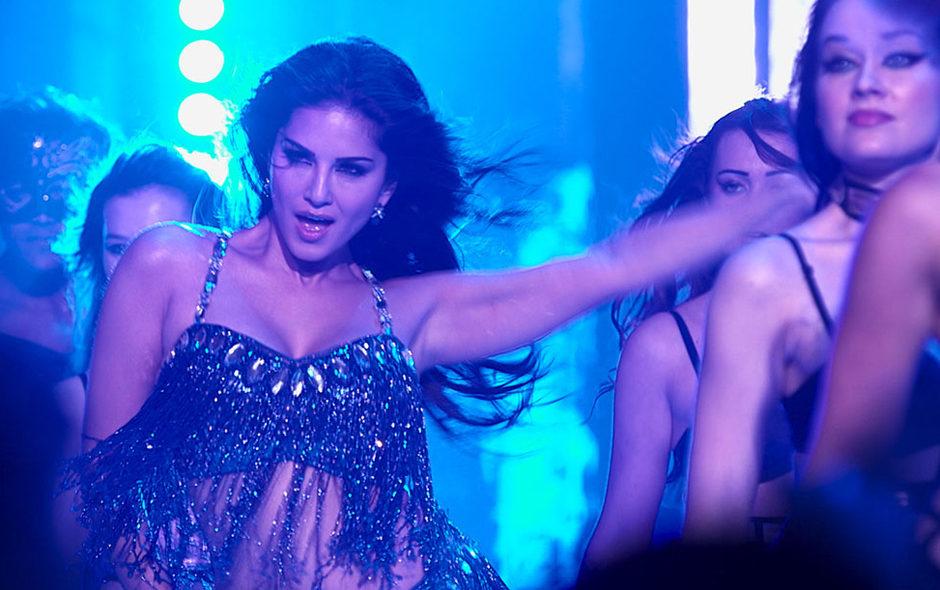Bollywood star Sunny Leone (real name, Karenjit Kaur Vohra) is the most Googled celebrity in India thanks to her lucrative career in pornography. Did a risky career move to Bollywood pay off? That’s the open-ended question Dilip Mehta’s documentary Mostly Sunny asks, but the answers it provides don’t tell the whole story.
The film begins with a contextualization of Sunny Leone’s popularity in her parents’ native country of India and the clash between its puritanical culture and the adult actress’ career choices. She’s beloved and reviled by men in the same breath. However, there’s no doubt the entire country is fixated on her every move, regardless of opinion. Some love her, others are more critical, especially of her acting, while those in the diaspora refuse to talk about her at all. As Sunny Leone points out, many Indian-Canadians who knew her as a child growing up in Sarnia, Ontario, have the hardest time accepting her porn work.
While the film seems to be asking the question of whether or not Leone can make it as a “real” actress, it does not illustrate her career trajectory. This is utterly confusing for viewers ignorant of her success. The doc does detail how she found mainstream popularity in the reality TV show Bigg Boss, but despite the many clips of her on the set of Bollywood productions, the film fails to provide a linear progression.
In one scene, she’s describing how her film Jackpot tanked, but the way it’s talked about you’d think it’s a recent film and she’s still recovering from the failure, when in actuality she’s already a famous Bollywood star. And certainly, the film can show us that she’s a hard worker, as well as a beautiful starlet. It’s no wonder so many people are fascinated by her image. But what is Sunny Leone like in real life?
Much of the running time of Mostly Sunny is devoted to a character study of Leone in her personal quarters running her daily life. She comes off as a good-spirited and emotionally well-adjusted person, someone who feels completely comfortable with her sexuality. Yet the emotions on display here — when she’s talking about her parents, for example, who had a difficult time accepting her profession — all feel polished.
Mehta fails to break through this rehearsed rhetoric, and it becomes glaringly obvious when the film focuses on her brother Sundeep’s anecdotes. The most personal moment in the film comes from Sundeep when he describes their mother’s alcoholism and eventual death. He’s speaking quickly and practically about what happened when suddenly everything gets stuck in his throat and he politely asks for a moment to collect himself. It’s a devastating moment, especially given his description of how his sister’s profession so deeply affected their mother’s mental health.
But we don’t ever really hear a frank admission from Sunny Leone about this unsettling fact and what it all means to her. She acknowledges a sense of guilt, but her answers are nonetheless whitewashed and vague, as if she’s in a Hollywood production.
Maybe Mehta didn’t ask the right questions, or maybe Leone doesn’t know how to articulate the impact she had on her mother. Regardless, it’s frustrating for a documentary to only tease us with real moments of human emotion.
Instead, Leone constantly talks about her career, what’s next, what her fans want — her words are always about image and money-making, and little else. This may be why Mehta brought in another talking head to analyze her personality as brand, but because the film feeds into Leone’s own image-making, such critical commentary feels incongruous.
Mostly Sunny is an apt title, then — we mostly get a sense of what Sunny’s like, but only so far as what she wants us to see.
Originally published in The National Post (January 12, 2017).

